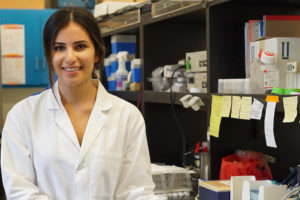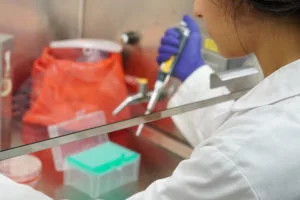The growing importance of “healthy foods” in today’s society has resulted in a growth of regulations governing foods, functional foods and dietary supplements. Students will examine the differing rules governing traditional foods, functional foods and dietary supplements in the U.S. by bringing science and health expertise into a social context.
The Graduate Certificate in Food Safety program’s coursework is designed to strengthen the knowledge base and functional toolkit of individuals who deal with the regulation and policy of food in industry and government.
Our accredited graduate certificates develop specialists for high-demand areas within the broader field of regulatory and quality science. Programs are structured so working professionals can take one or two courses per term. Each certificate can stand alone, or you have the option to build upon your coursework and apply it later toward a master’s degree or our doctoral program.
Earn your Graduate Certificate in Food Safety online. Request more information.
Graduate Certificate in Food Safety Curriculum
The USC Graduate Certificate in Food Safety requires satisfactory completion of 12 units beyond the baccalaureate degree.
Typically, courses offered by the Department of Regulatory and Quality Science can be taken either in-person or online (within the United States). Upon admission, a course plan will be developed to fit your needs.
Career Opportunities for Food Safety Graduates
The FDA offers employment in more than 30 distinct disciplines, and opportunities within the industry can be even more varied. The following are but a few of the broad range of job categories within regulatory and quality sciences:
- Business development/corporate strategy
- Government affairs and policy
- Research and development
- Clinical trials management
- Risk management
- Quality assurance and control
- Good manufacturing processes
- Quality system regulation
- Domestic and international compliance
- Supply chain management
- Project management
- Drug safety
- Marketing
- Medical writing
- Post-marketing surveillance
- Comparative effectiveness
- Reimbursement
Your career in food safety here. Request information today.
Designed for Working Professionals
All courses offered by the Department of Regulatory and Quality Sciences can be taken online or in-person. Created for working professionals who wish to further their education but cannot travel to traditional classrooms, online students participate in the same classes as students who attend onsite. Lectures can be viewed in real time or at another time.



